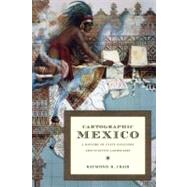Cartographic Mexico
, by CRAIB, RAYMOND B.- ISBN: 9780822334163 | 082233416X
- Cover: Paperback
- Copyright: 11/1/2004
This vivid social history reveals the powerful role that cartographic projects such as exploration, surveying, and mapping played in the creation of modern Mexico in the late nineteenth and early twentieth centuries. Raymond B. Craib describes the varied and pervasive attempts by government officials to determine the lines and claims that would define the nation. These projects included the privatization of communal lands; the delineation and archiving of village, municipal, state, and national boundaries; and the determination of waterways and water rights. As Craib emphasizes, the everyday processes of these cartographic routines proved to be much more conflicted than is indicated by their end products: maps with unitary and smooth façades. Taking central Veracruz as a case in point, Craib shows how agrarian officials, military surveyors, and metropolitan geographers traversed "fugitive landscapes" of overlapping jurisdictions and use-rights, opaque tenure systems, confusing property regimes, ambiguous borders, and shifting place names. He draws on an array of sources-including maps, letters from campesinos, official reports, and surveyors' journals and correspondence-to trace the everyday, contested processes through which officials attempted to redefine and codify these landscapes in struggle with the villagers they encountered in the field. In the process, he demonstrates in meticulous detail how surveying and mapping were never mere technical procedures: they were-and remain to this day-profoundly social and political processes in which rural people, long ignored in the history of cartography, were actively involved.







